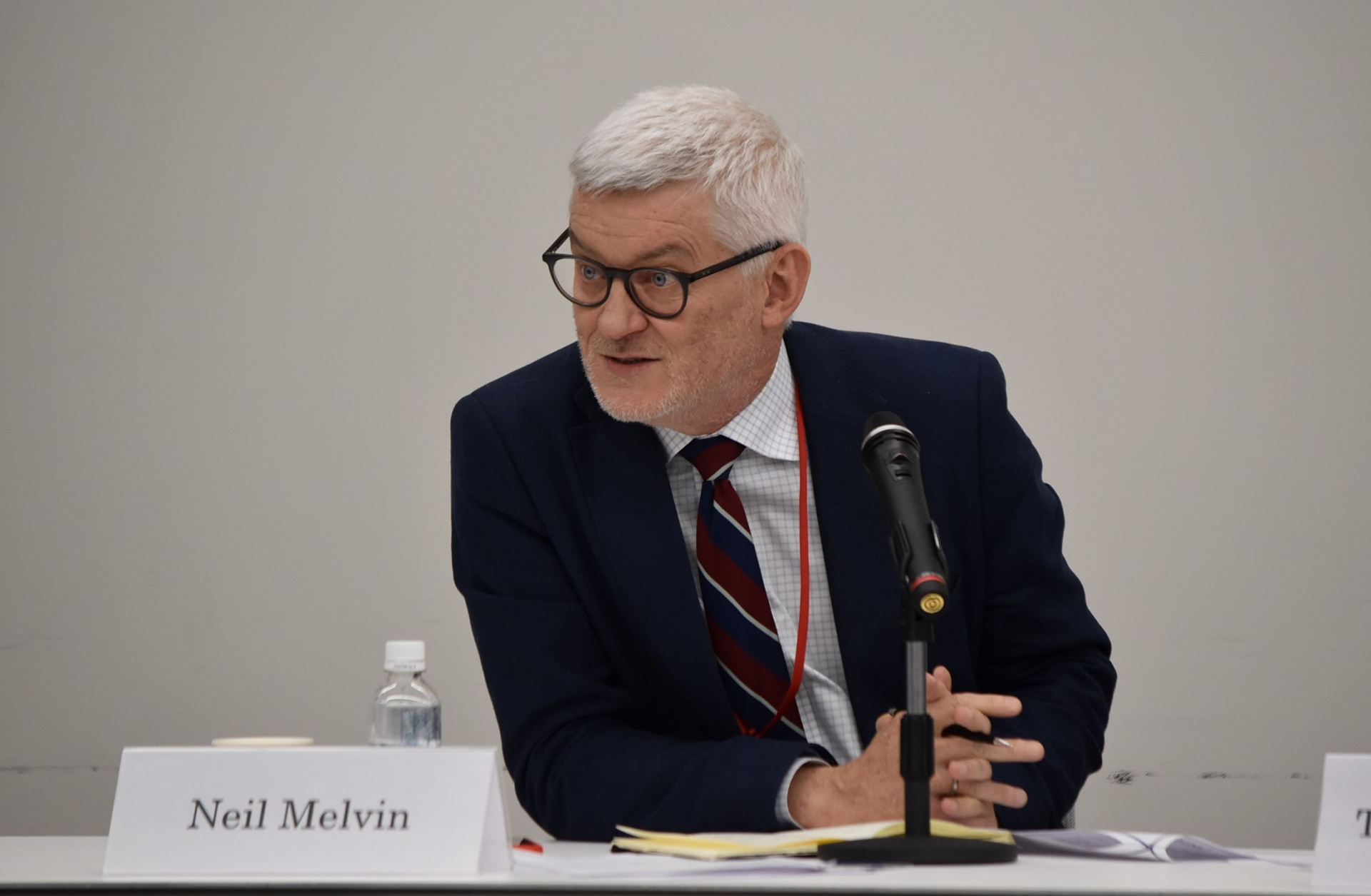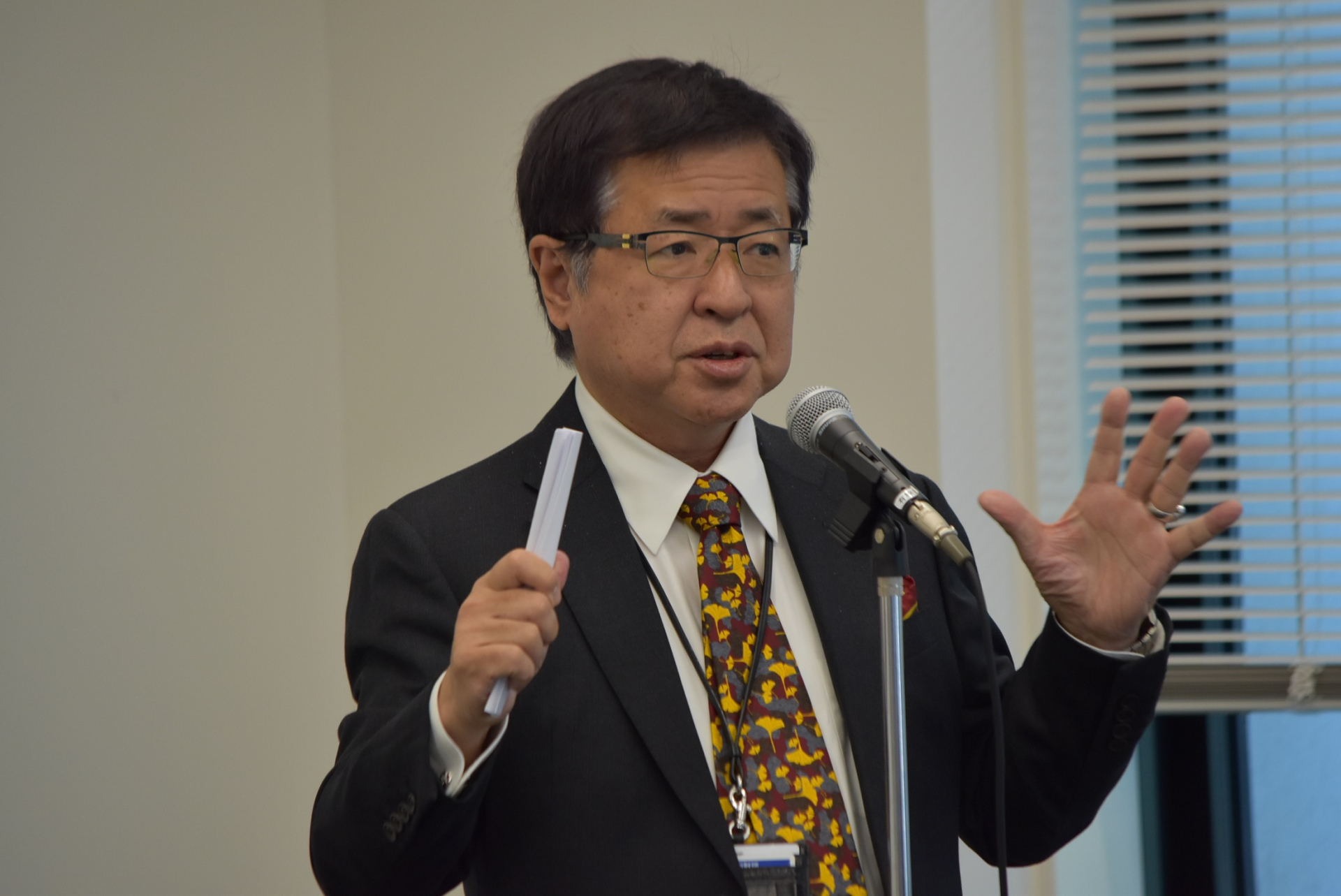In the two sessions that followed, the participants exchanged opinions on the complex and challenging security environment across the region, focusing discussions on the themes of “Translatlantic cooperation on the Indo-Pacific – risks and opportunities?” and “How Japan can leverage Transatlantic cooperation to achieve FOIP?”
The first session started off with a presentation by Dr. Philip Shetler-Jones (Senior Research Fellow, RUSI) that brought out key findings from the recent work RUSI has conducted with Chatham House under the theme “Transatlantic Cooperation on the Indo-Pacific.” In his presentation, Dr. Shetler-Jones pointed out both the commonalities and differing perspectives of the transatlantic allies, notably by the United States (U.S.) and Europe, as well as within Europe, on challenges made on the three domains – notably, trade and economy, security, and global governance. Following several responses by experts in the region, the participants held a lively discussion on the related topics.
The discussion also addressed the current state of the transatlantic partnership and its potential in moving toward a new chapter. While accommodating the existing partnerships in the region, the participants pointed out the need to explore new ways of cooperation by embracing more recent partnerships such as AUKUS (trilateral security partnership between Australia, the U.K., and the U.S.) and GCAP (a new fighter-jet development program among Japan-U.K.-Italy). The session ended with the consensus that beyond conceptual understanding, more practical cooperation is needed to be explored.
The second session saw discussion on other substantial topics of the transatlantic partnership in Indo-Pacific security. In the initial thematic talks and exchanges, three panelists from Japan and the U.K. shared their views on relevant issues involving the U.S., China, and economic security. One participant pointed out the need to overcome the distance by leveraging existing frameworks and have a shared view on the strategic risks. While acknowledging the difficulties to have the same threat perception among the partner countries, another participant noted that there was a considerable development in the recent narratives of the G7 and a potential “G7 plus” in tackling the emerging challenges. Challenges on economic security appeared to be felt equally among the participants. Given this point, one participant pointed out that the priorities and policy responses, as well as resource constraints, were not necessarily coherent among the European Union, U.S. and Japan, so it would require careful observation on the differences among the trilateral partners. On global governance, a point was made not to forget multilateral cooperation frameworks such as the United Nations (U.N.). While the U.N. Security Council is deadlocked, an insider view was shared that related agencies and institutions in Geneva are now serving an important role to revitalize international cooperation.
To wrap up the workshop, Dr. Melvin reflected that this could be a key moment in the transatlantic debate especially regarding issues involving intensifying geostrategic challenges in Asia, but also pointed out the importance of consolidated efforts to maintain the rules and norms throughout the Indo-Pacific region in the longer timeframe. He highlighted the importance of broadening the conversation by bringing in countries such as Japan to help the transatlantic community navigate these issues and build more common approaches. Dr. Melvin commended Japan as being the key actor on discourses on the Indo-Pacific and its indivisibility with European security, and pointed out that Japan is best placed to support Europe to build commonality of interest, cultivate shared perceptions and develop solidarity among transatlantic partners in future.

